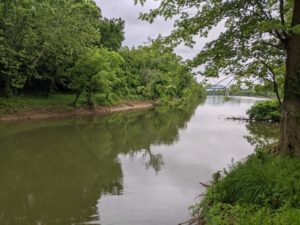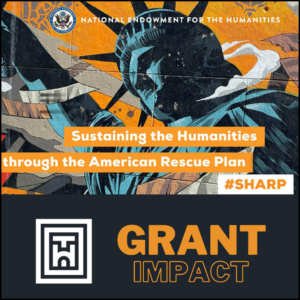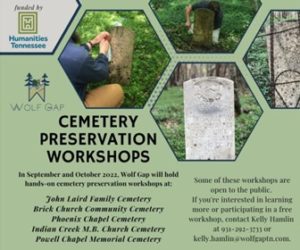Humanities: Everywhere for Everyone
Autumn in Tennessee is the time of year to be outside. For organizations doing humanities projects and programs, it’s also a time to think outside. The pandemic prompted many of us to get outside in new ways so we could socialize in relative safety. It also led to creative opportunities to expand humanities programming out of lecture halls and exhibit spaces and into forest and parks, urban spaces and waterways. The humanities are meant for more than museums and libraries. They are for anyone who asks the question, “Why does this matter?” And every nonprofit needs to know how to answer that question when it comes to their mission.
A common theme has emerged in our SHARP grant series this summer – the humanities are everywhere and for everyone. This month, we look forward to featuring organizations and projects that challenge us to think outside our own experience and to get outside and engage with culture and history in new ways.
- Vinebranch Fellowship will work with local community schools to teach the history of community gardens including discussions of diversity, socioeconomics, and the cultural history of seeds they will plant.
- Knoxville History Project is creating a downtown literary walking tour booklet that will feature author biographies, quotations, and a map to provide a gateway to Knoxville’s literary heritage and to the city’s appeal. The tour will highlight works by important Knoxville authors, including James Agee, Frances Hodgson Burnett, Nikki Giovanni, Cormac McCarthy, George Washington Harris, Alex Haley, and others.
- Etowah Historical Society will produce a 40-page interpretive guide to the Etowah Depot, its grounds, and nearby historic sites within the central portion of their downtown. The guide booklet provides a thorough history of the birth of a Tennessee town at the dawn of the Twentieth Century.
 Cumberland River Compact plans to engage the community in conversations and deep dialogue about the fascinating history and heritage of Hill’s Island, a twenty-acre parcel of land in the middle of the Cumberland River.
Cumberland River Compact plans to engage the community in conversations and deep dialogue about the fascinating history and heritage of Hill’s Island, a twenty-acre parcel of land in the middle of the Cumberland River.- Wolf Gap: Five Giles County historic cemeteries will benefit from hands-on cemetery preservation workshops this September and October. Participating groups will work alongside Wolf Gap volunteers in a two-hour hands-on workshop at their cemetery, reviewing cemetery research methods and using the highest quality supplies to safely clean historic headstones.
“Our SHARP grantees are telling the stories of the built environment, the hidden landscape, the garden next door, the birth of a town, an old cemetery. Stories connect us across cultures, across oceans, across lifetimes. A place is just a place until someone tells you it’s story. These organizations are using the humanities to show us why these places matter. We only have to listen.” – Paul McCoy, Deputy Director of Grants & Public Programs
 Sustaining the Humanities through the American Rescue Plan (SHARP) is made possible by the National Endowment for the Humanities as part of the $1.9 trillion American Rescue Plan Act of 2021 approved by the U.S. Congress and signed into law on March 11, 2021.
Sustaining the Humanities through the American Rescue Plan (SHARP) is made possible by the National Endowment for the Humanities as part of the $1.9 trillion American Rescue Plan Act of 2021 approved by the U.S. Congress and signed into law on March 11, 2021.



